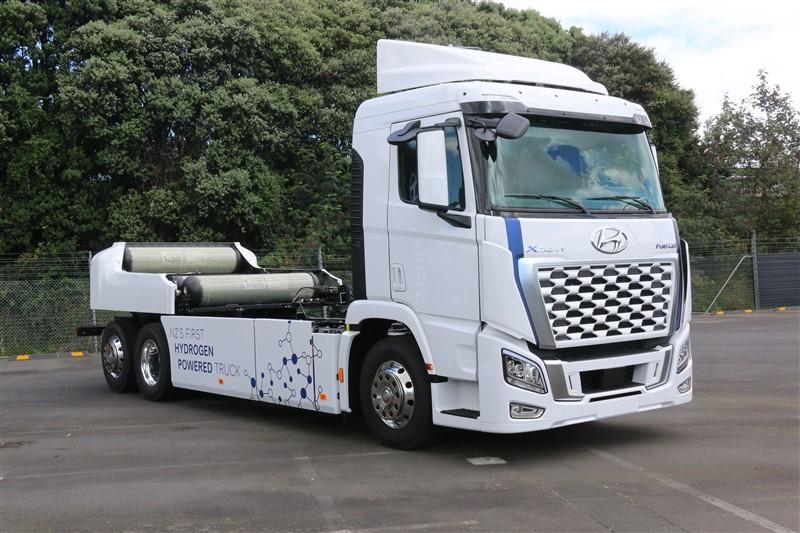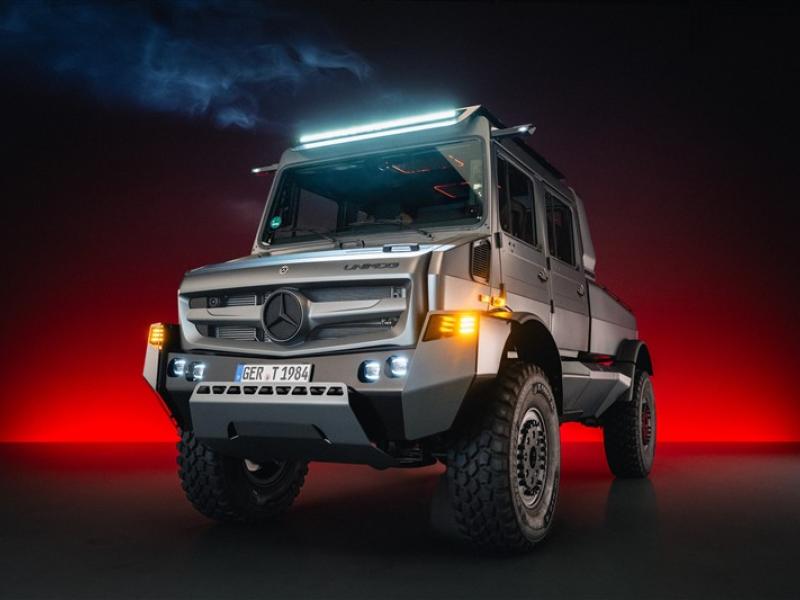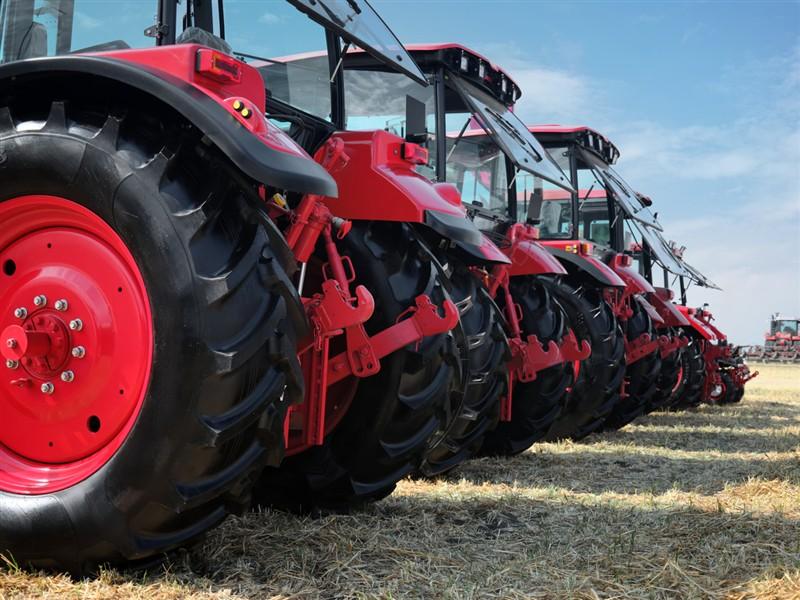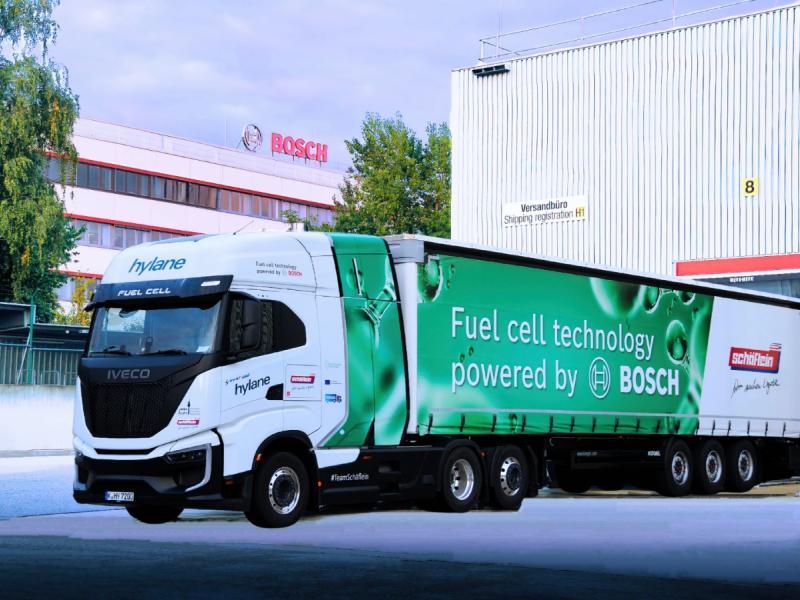The Xcient was shown to media on 26th November with an official welcome from Minister of Transport, Hon Michael Wood. This is the first of five being imported for trialling.
Hyundai Motor Company are currently the only mainstream vehicle manufacturer with heavy duty hydrogen fuel cell trucks in mass production. Hyundai Motors has been investing in and developing hydrogen technology for vehicles for over 20 years now and are proudly world leaders in FCEV (Fuel cell Electric Vehicles) development.
Here in New Zealand the Heavy Transport sector makes up 4 percent of the National fleet and is responsible for 25 percent of transport emissions. So for us, it’s a great place to start.
Hydrogen technology is better suited than battery electric trucks as a heavy-duty, reliable, future cost-effective replacement for diesel trucks. The use of hydrogen rather than weighty batteries means they have longer range, shorter refuelling time and greater payload.
The electric motor is run by two 90kw fuel cells supported by a small battery pack (72kWh), which is continuously charged through the splitting of hydrogen. This results in a clean and quiet motor where the only emission is water.
The first of these trucks will be on the road in the second quarter of next year, in a live field demonstration.
“As a Kiwi owned company, we are big believers of implementing alternative fuel technology here in NZ. We have championed this through the introduction of NZ’s first hydrogen-powered SUV, NEXO, in 2019. Now with the XCIENT FCEV, we have an opportunity to help fast track the large scale adoption of alternative green fuels in the New Zealand road freight sector,” says Andy Sinclair, Hyundai New Zealand General Manager.
New Zealand is just the third country to have access to these trucks, following Switzerland (where 45 are in use) and Korea. Hyundai New Zealand has initially taken Swiss specification to get the programme underway early. The trucks will be converted locally to NZ configuration and a body affixed in preparation to hit New Zealand roads.
The Hyundai XCIENT Fuel Cell is the world’s first mass-produced heavy-duty truck powered by hydrogen. There are already a number of FCEV XCIENT in real world operations that have now collectively exceeded 2 million kilometres of driving.
Hyundai New Zealand will work with local partners in the freight sector to determine where the trucks will operate regionally. This demonstration will give insights into how the trucks fit into timetables, capacity, maintenance schedules, refuelling, drivability and user-training specific to New Zealand.
The country can comfortably produce the hydrogen these trucks require and Hyundai New Zealand’s introduction timing will complement the rollout of the hydrogen refuelling network.
Each FCEV XCIENT operating in place of an equivalent Diesel truck will save 50 ton* of C02 per year from being emitted. With the New Zealand heavy transport sector responsible for 25 percent of transport emissions, green hydrogen provides a practical zero emission toward meeting our emission reduction targets.
The FCEV system is modular – for more range add more tanks, more power add more battery cells. It consists of two fuel cell stacks operating at 400 volts each producing 90kW, connected to 72kwh batteries (three 24 packs. These supply a 350kW traction motor producing 2237Nm of torque – Hyundai say performance will be similar to a 470kW diesel truck. There is regenerative braking and refuelling will take 8 – 20 minutes. The seven tanks which can hold 31kg of Hydrogen are fitted at the rear for shipping but will be moved to stack behind the cab when a body is fitted locally and will give a range of around 400km.
The truck has a GVM of 28 tonnes and a Gross Mass of 42 tonnes.
Hyundai New Zealand’s first hydrogen-powered truck arrives
Hyundai New Zealand’s first hydrogen-powered truck arrives
Diesel Industry News
Tuesday, 08 February 2022






